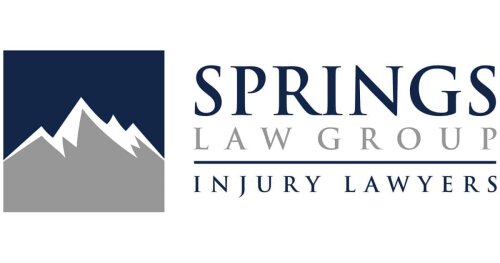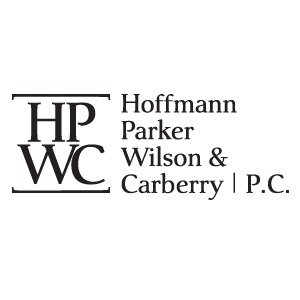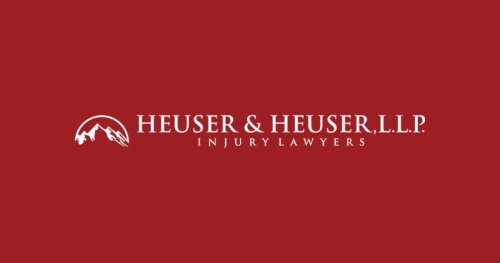Best Commercial Litigation Lawyers in Colorado
Share your needs with us, get contacted by law firms.
Free. Takes 2 min.
Or refine your search by selecting a city:
List of the best lawyers in Colorado, United States

About Commercial Litigation Law in Colorado, United States
Commercial litigation in Colorado refers to the legal process of resolving disputes related to business and commercial activities. These disputes can arise between businesses, individuals, or government entities and often involve issues such as breach of contract, partnership conflicts, business torts, and intellectual property matters. Colorado's commercial litigation system operates within the broader structure of both state and federal courts, using state statutes and case law to resolve various business disputes. The process can include negotiation, mediation, arbitration, and, if necessary, trial before a judge or jury.
Why You May Need a Lawyer
There are many scenarios where legal assistance may be crucial in commercial litigation cases. Common situations include:
- Breach of business contracts, such as failure to deliver goods or services, late payments, or non-performance
- Disputes between business partners or shareholders regarding company control or profit distribution
- Claims involving fraud, misrepresentation, or deceptive trade practices
- Intellectual property disputes, such as trademark or copyright infringement
- Employment-related disagreements, including non-compete clauses or wrongful termination
- Real estate and construction disputes involving commercial properties
- Issues regarding the dissolution or reorganization of businesses
A qualified commercial litigation lawyer can help protect your interests, ensure compliance with local laws, and represent you effectively whether you are pursuing or defending a claim.
Local Laws Overview
Commercial litigation in Colorado is governed by a combination of state statutes, court rules, and case law precedents. Key aspects include:
- Colorado Rules of Civil Procedure: These rules outline how lawsuits are initiated, conducted, and resolved in Colorado state courts.
- Colorado Uniform Commercial Code (UCC): Applies to commercial transactions including sales of goods, leases, and secured transactions.
- State and Federal Courts: Depending on the amount in dispute and the parties involved, cases may be heard in District Courts or federal courts such as the United States District Court for the District of Colorado.
- Alternative Dispute Resolution (ADR): Colorado courts often encourage or require mediation or arbitration before proceeding to trial.
- Statutes of Limitations: There are time limits for filing various types of commercial claims. For example, breach of written contract claims typically must be brought within three years.
It is important to consult a lawyer to understand which laws and procedures apply specifically to your commercial dispute.
Frequently Asked Questions
What is commercial litigation?
Commercial litigation is the process of resolving business-related disputes through legal proceedings in state or federal court, or through alternative dispute resolution such as mediation or arbitration.
When should I contact a commercial litigation attorney?
You should contact an attorney as soon as a business dispute arises, especially if you receive a legal notice, become aware of a potential lawsuit, or need to pursue legal action to protect your interests.
How long do commercial litigation cases usually take in Colorado?
The duration varies depending on factors such as the complexity of the dispute, court schedules, and whether the parties pursue settlement or proceed to trial. Cases can last from a few months to several years.
Can commercial disputes be resolved without going to court?
Yes, many commercial disputes in Colorado are settled through negotiation, mediation, or arbitration, which can be faster and less expensive than a trial.
What types of businesses can be involved in commercial litigation?
Any business entity, including corporations, limited liability companies, partnerships, and sole proprietorships, can be involved in commercial litigation.
What are the costs associated with commercial litigation?
Costs can include attorney fees, court filing fees, expert witness fees, and costs related to document discovery and trial preparation. Some attorneys may offer alternative fee arrangements depending on the case.
What is the statute of limitations for commercial litigation in Colorado?
The statute of limitations depends on the type of claim. For example, breach of written contract claims generally must be filed within three years, while other claims may have different time limits.
Will my case be public record?
Most court proceedings and filings in Colorado are a matter of public record, although some information can be kept confidential by court order or under specific statutes.
Can I recover attorney fees if I win my commercial litigation case?
Sometimes. Attorney fees may be recoverable if the contract at issue provides for it, or if a specific statute allows it. Otherwise, each party generally pays its own legal fees.
Do I have to appear in court for commercial litigation?
Not always. Many matters are resolved before trial, and some preliminary hearings may not require your presence. However, you may need to appear for important hearings, depositions, or if the case proceeds to trial.
Additional Resources
Individuals seeking further information on commercial litigation in Colorado may find these resources helpful:
- Colorado Judicial Branch: Provides access to court rules, filing procedures, and case information.
- Colorado Bar Association: Offers public legal education, lawyer referrals, and resources about business law.
- Colorado Secretary of State: Contains business entity records and information relevant to business filings and disputes.
- United States District Court for the District of Colorado: Handles federal commercial litigation and offers guidance on court procedures.
- Local legal aid organizations: Certain non-profits offer advice or referrals for those unable to afford a private attorney.
Next Steps
If you require legal assistance with a commercial litigation matter in Colorado:
- Identify the specific nature of your business dispute and gather relevant documents, such as contracts, correspondence, and financial records.
- Contact an experienced commercial litigation attorney for an initial consultation to discuss your situation and receive guidance on your legal options.
- Assess deadlines such as statutes of limitations to ensure your rights are preserved.
- Work with your lawyer to develop a strategy, whether it involves negotiation, mediation, arbitration, or proceeding to court.
- Stay informed throughout the process and maintain open communication with your legal counsel to achieve the best possible resolution for your dispute.
Taking prompt action and seeking professional advice can significantly influence the outcome of your commercial litigation matter in Colorado.
Lawzana helps you find the best lawyers and law firms in Colorado through a curated and pre-screened list of qualified legal professionals. Our platform offers rankings and detailed profiles of attorneys and law firms, allowing you to compare based on practice areas, including Commercial Litigation, experience, and client feedback.
Each profile includes a description of the firm's areas of practice, client reviews, team members and partners, year of establishment, spoken languages, office locations, contact information, social media presence, and any published articles or resources. Most firms on our platform speak English and are experienced in both local and international legal matters.
Get a quote from top-rated law firms in Colorado, United States — quickly, securely, and without unnecessary hassle.
Disclaimer:
The information provided on this page is for general informational purposes only and does not constitute legal advice. While we strive to ensure the accuracy and relevance of the content, legal information may change over time, and interpretations of the law can vary. You should always consult with a qualified legal professional for advice specific to your situation.
We disclaim all liability for actions taken or not taken based on the content of this page. If you believe any information is incorrect or outdated, please contact us, and we will review and update it where appropriate.
Browse commercial litigation law firms by city in Colorado
Refine your search by selecting a city.













